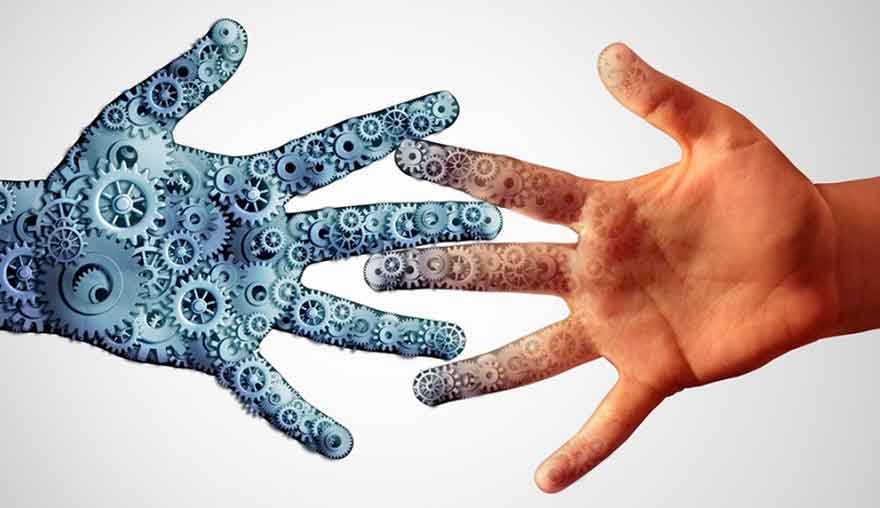In the '70s, the Sex Pistols sang: "I'm an antichrist, don't know what I want, but I know how to get it..." This phrase perfectly describes what is happening to us today. Our world is full of means ("I know how to get it"), but it doesn't know what end to pursue ("I don't know what I want").
Within the framework of the research seminars of the Collège des Bernardins, Olivier Rey proposes here a reflection to seek, elaborate and transmit messages of hope for the future of mankind, based on the knowledge of wisdom and the understanding of today's world.
Ahe impressive developments in biological research have provided mankind with an unprecedented capacity for intervention on living organisms, including in his own body. Moreover, they have led to a dramatization of the ethical debate since they call into question the identity of the individual and the founding values of human societies.
Such a deployment of scientific knowledge and its applications provokes our societies to a moral reflection intended to provide a humane basis for legal and budgetary regulation. Beyond a mechanistic biomedicine that would only find in it its own aspirations and legitimations, this department is committed to identifying the anthropological and ethical issues of medical research and practice. The rational dialogue it establishes is enriched by the examination of the spiritual aspects of the issues under debate.
Distance between ends and means
The distance between ends and means has become abyssal. Ideally, the cleavage between the ends and the means is not there. But humanity presupposes a certain dissociation between the order of ends and the order of means. It is because beings can distance themselves from the end they are pursuing that they are also able to develop the means that will enable them to achieve those ends. Because they are able to develop means for themselves, they are able to pursue new ends. But a genuine human culture makes it possible to overcome this dissociation and integrate it into a whole.
True Humanity (Gunther Anders, The obsolescence of man) begins "where the means as well as the ends are at this point impregnated with the very style of the habits and customs as well as with the fragments of life or of the world, one cannot recognize (and no longer even ask oneself) whether they are means or ends. Where the path leading to the fountain is as refreshing as the water you drink from it".
The technique is no longer developed for purposes
This dissociation between end and means is particularly implemented within the technique. The technique has become autonomous, and it no longer develops according to ends, but according to its own possibilities for growth. Then it demands ends for the new means it generates.
Jacques Ellul had described this (Le système technicien, 1979): "We have the logical and scholastic habit of considering that we begin by posing problems before arriving at the solution. In technical reality, the order must be reversed. ... The solution precedes the problem. Under these conditions there is no room for inserting any kind of finality. "We tell the story backwards by making people believe that we built airplanes because, like Icarus, we wanted to fly, whereas we built airplanes after having created engines so powerful that the car did not exhaust their power.
Transhumanism and the feeling of inadequacy it maintains
This is how transhumanism emerged, in the face of the flood of innovative technology: what use is it for? We are so over-equipped that creating demand becomes difficult. There remains one scandalously unexploited place: the body. This is the new frontier, the new market to conquer. Humans must be convinced that their bodies are deficient, that they are poor things to be improved. Yet the contemporary individual is convinced that he is superior to those who have gone before him and, above all, gnawed by a feeling of inadequacy.
1) This paradoxical feeling is linked to the technique itself. The language of things has changed over these four decades. Our most familiar world is no longer constructed of objects made by man's hands and made for man. Craftsmanship gave things a "mysterious quality". Pasolini situates this break from the glorious thirty in the erasing of all traces of human intervention in machine-made objects.
In the absence of a link between the object and the person who made it, this is one of the sources of what Gunther Anders has called the "Promethean shame": the feeling of strangeness and inferiority, conscious or unconscious, which seizes the individual in the face of certain productions which, although of human origin, no longer have anything in common with what a human being, however skillfully he may be, can do.
2) Yet there is nothing to be ashamed of. A machine, whatever it is, only exerts its fascination through an unjust confrontation with human faculties, because it is limited to the narrow ground where this machine excels, outside of which it is without resources. Nevertheless, a feeling of inadequacy exists, born of what Gunther Anders calls "multiple souls", that contemporary habit of the contemporary orchestra man who always wants to do several things at the same time (and this thanks to technique) without being able to rest in one, at the risk of being broken up into a plurality of separate functions (all of which can be substituted by a machine).
By externalizing itself in modern technology, a certain form of rationality begins to crush the person it was meant to serve to the point that the person begins to resist ogling the side of the animal, valuing the impulsive domain. Whoever wants to be too much of a technician ends up being too much of a beast. Becoming a robot makes the bonobo sing the praises of the bonobo!
The diminished man
The consequence of this is that we are diminished, materially and spiritually.
1) Material decrease
When the technique brings too much energy into play, it stops magnifying the faculties of our body, but it renders these faculties inoperative. Thus, Illich has clearly shown that the car that is supposed to shorten distances has made it possible to extend the distances to be covered. But as a result, it is no longer possible to walk from one point to another because the distances are too great. The clean body becomes impotent.
With such developments, the consumer becomes as dependent on the market as the infant is on the people who care for him or her. In fact, we are like in intensive care units: the body is only kept alive by being connected to high-tech equipment.
2) Spiritual Decline
There's a world out there now that's bigger than us. Georg Zimmel (1903) already made this observation at the beginning of the 20th century. Transhumanism is not so radically new. It is necessary to understand the overall logic and its roots.
"In any case, the individual is less and less able to measure himself against the invasion of the objective culture. He is reduced to being a negligible quantity, a speck of dust in the face of an inordinate organization of things and forces which totally rob him of all progress, all spiritual values and moral values, and lead them from the form of subjective life to that of a purely objective life. »
All these paradoxes come down to one: with modernity, men were supposed to leave
Heteronomy for autonomy, freeing themselves from their old terrors and the prejudices of another age, emancipating themselves from their guardianships and reaching maturity, and the result is disappointing. Modernity has massively rejected God, interpreted as a castrating projection, an illusion from which one had to free oneself in order to reach adulthood.
However, the superior human condition that was supposed to result from an overcoming of faith in God reveals itself rather as an involution, a return to infantilism and its all-powerful fantasies. Cf. Chesterton:
"when men stop believing in God, they don't believe in nothing, they believe in anything".
But which God?
We must be careful not to judge too quickly the movement of rejection of God. We must first ask ourselves who is the God who has been rejected. In many cases, the rejected God deserved to be, as he was rather a figure of the devil, a god conceived as a tyrant, not attached to making his creature grow but granting him only crumbs in exchange for total submission.
In the faith of the demons, Fabrice Hadjaj quotes this admirable page from St Bernard. "Lucifer, 'full of wisdom and perfect in beauty', was able to know in advance that there would one day be men, and also that they would reach a glory equal to his own. But if he knew this beforehand, he undoubtedly saw it in the Word of God, and in his anger he conceived envy. Thus he planned to have subjects, disdainfully refusing to have companions. Men, he says, are weak and inferior by nature: it is not fitting for them to be my fellow citizens, nor my equals in glory (Bernard of Clairvaux, Sermon on the Song of Songs, XVII, 5-6).
Transhumanism presupposes that there will be dominators and dominated, forgetting that the dominant themselves will be (are?) subject to the technique. (Cf. C.S Lewis, The Abolition of Man).
The devil's technique is to persuade man that the pulpit is inherently evil, or at least, that it has nothing to do with the spirit. (Cf. Eric Fiat Body and Soul).
Conclusion
Transhumanism gives itself as an afterlife of the human, but if we look closely we recognize all the part of the underside that is hidden behind this so-called afterlife. The transhumanist imaginary is the most sophisticated technique put at the service of regression. It is the promise that thanks to the technique, we will no longer have to become adults. To develop this technique, men and women had to submit to pure rational discipline, to respect the principle of reality, but still a human effort to be liberated!
But beware, it is not enough to criticize the enormous economic stakes and the ultraliberal substratum of the transhumanists. To be critical, we must also identify within ourselves what calls for this reign and this fascination with technology. The regressive nature of life in the consumer society fits in with the regressive imagination that characterizes transhumanism in a high-tech way. One combines with the other, one draws its strength from the other in an infernal combination that one has no chance of undoing unless one attacks both terms simultaneously.
For if it has no chance of succeeding, this transhumanist discourse produces effects, starting by diverting us from more urgent tasks.
Humanity, the most horrible old woman among all the horrible old women, Nietzsche said, does not exist and never did. What makes sense to talk about is a certain species of primates, homo sapiens, characterized by bipedalism and hairiness, on the other hand a divino-humanity with creatures formed in the image of their creator with the vocation that this implies. Diderot affirms: man is the only term from which to start and to which everything must be brought back (Encyclopedia). In my opinion this is a fairly accurate definition of hell. On the ceiling of this hell, there is the trans or post human, but outside this hell, there is no ceiling, there is the sky.
Department of Biomedical Ethics in partnership with the University Paris-Est Marne La Vallée,
Political Ethics Spaces - Seminar 2015-2016
"Humanism, transhumanism, posthumanism"...
Speaker: Olivier Rey
Synthesis: Anne Lécu












